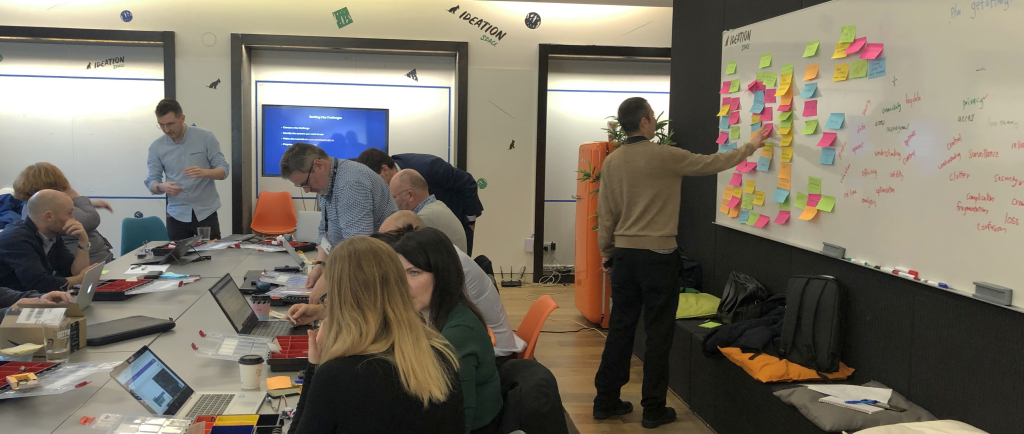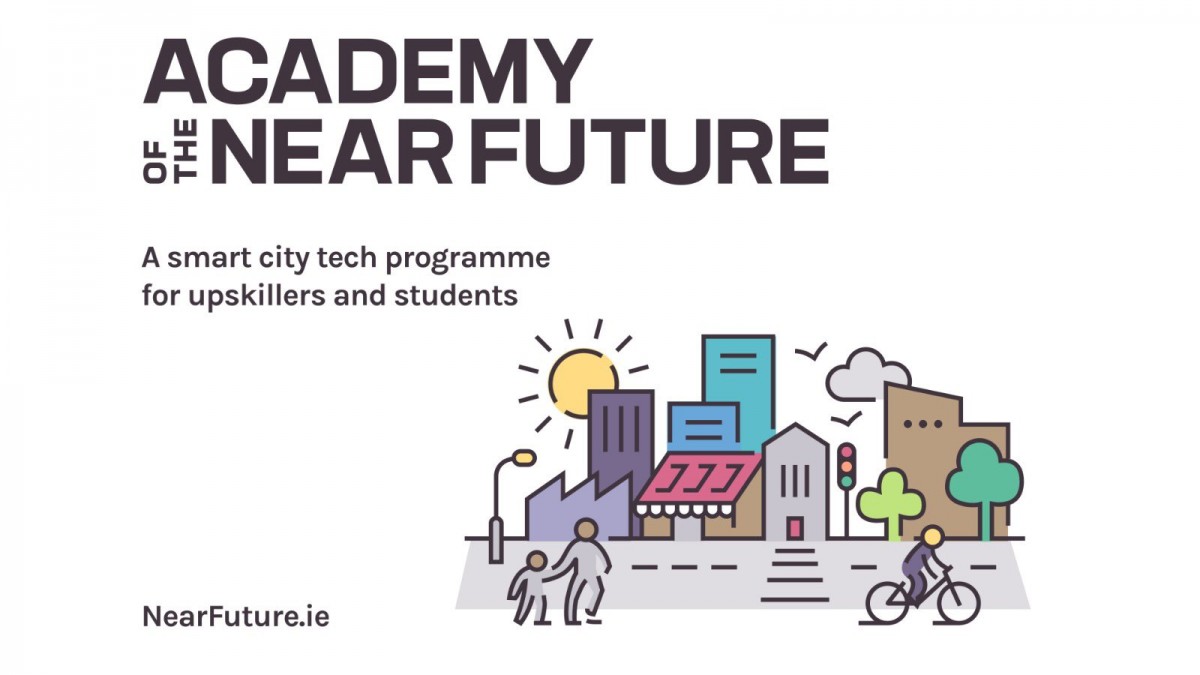The rapid development of Internet of Things (IoT) technology presents an opportunity to reshape how we address city challenges, create smarter cities and ultimately improve the lives of citizens through cheaper and more accessible technology.
A Smart City Education Programme
The rapid development of Internet of Things (IoT) technology presents an opportunity to reshape how we address city challenges, create smarter cities and ultimately improve the lives of citizens through cheaper and more accessible technology.
As cities move towards connected and smarter infrastructure, we need to ensure that our current and future workforce has a strong understanding of IoT and its potential to address city challenges. Academy of the Near Future is a Smart City Education Programme for upskillers and students to increase awareness and utilisation of IoT technology to create smarter cities and promote entrepreneurship.
Project Objectives
Academy of the Near Future – currently in pilot stage – is a partnership between CONNECT SFI Research Centre for Future Networks, Dublin City Council and Smart Docklands.
The programme, aimed at Transition Year secondary students and Public Sector Staff, aims to:
- Deepen understanding of IoT: demystify IoT by increasing participants’ understanding of a smart city, connectivity options and sensors.
- Reduce barriers to IoT engagement: be accessible, removing the technological barriers for people wanting to engage with IoT, and target students in lower socio-economic groups.
- Upskill the workforce: provide the tools and knowledge to empower professionals to utilise IoT to solve city challenges.
- Promote entrepreneurship: promote the use of innovative technologies such as IoT to address city challenges.
- Build trust: foster positive public opinion by building trust in the possibility of technology to address city challenges.
Project Implementation & Methodology

Together the partners will design, test and iterate the programme over a one year pilot period with Transition Year students and Local Authority staff across the Dublin Region.
Through a combination of interactive workshops and online learning, the programme will provide participants a hands-on opportunity to explore and experiment with Internet of Things (IoT) technology and understand how it can be used to address city challenges such as air pollution, space occupancy, waste management and flooding.
The programme uses low cost sensor kits, from leading IoT company Wia, allowing people with minimal prior coding knowledge to ‘plug and play’ with IoT. Creating an accessible programme is a key focus of the project as we want to remove any technological barriers which may prevent people from participating.
By the end of the pilot the aim is to have a validated programme that can be scaled nationally to deliver a much needed Smart Cities curriculum. During the pilot, the project will identify and establish a sustainable business model for scaling the Smart Cities curriculum across Ireland.
What are the expected outcomes?
- Participants deepen their understanding of key concepts such as smart cities, IoT, sensors and connectivity,
- Participants are able to demonstrate their ability to use IoT to address a city challenge.
- Participants understand how IoT can be applied to address city challenges such as waste management, flooding, air pollution, and congestion.
- Participants are aware of the deployment considerations when looking to use this technology in a city context.
- Participants develop an awareness of the scale of existing city challenges.
- Participants develop an appreciation of their personal ability to find solutions to city challenges using IoT
For more information see:
